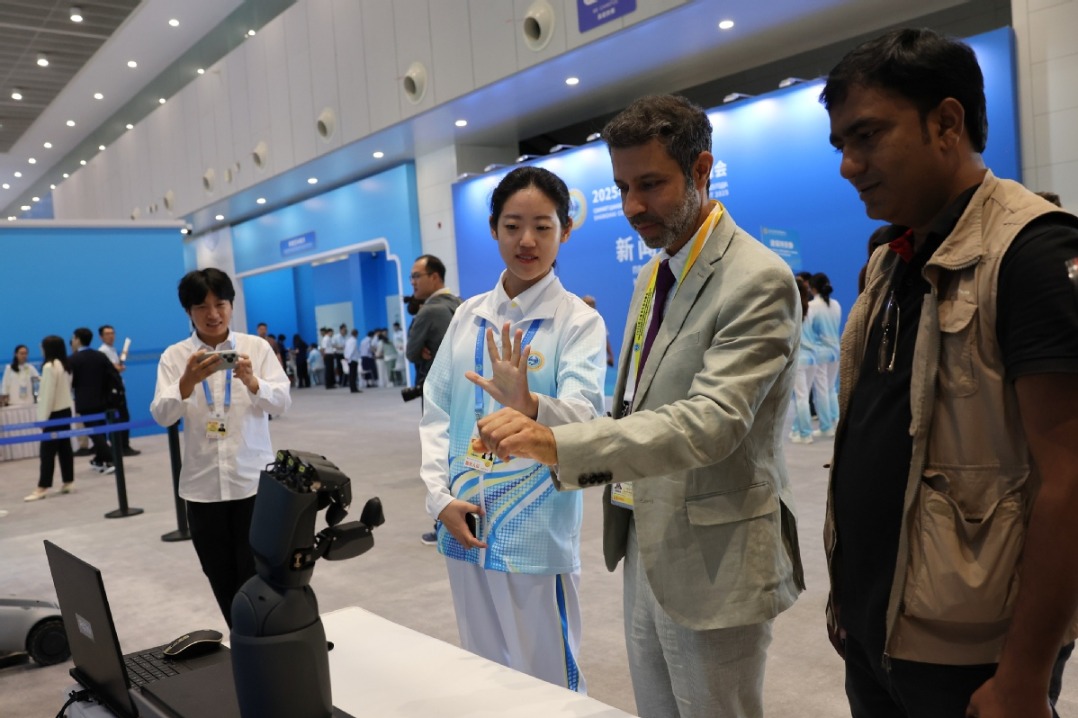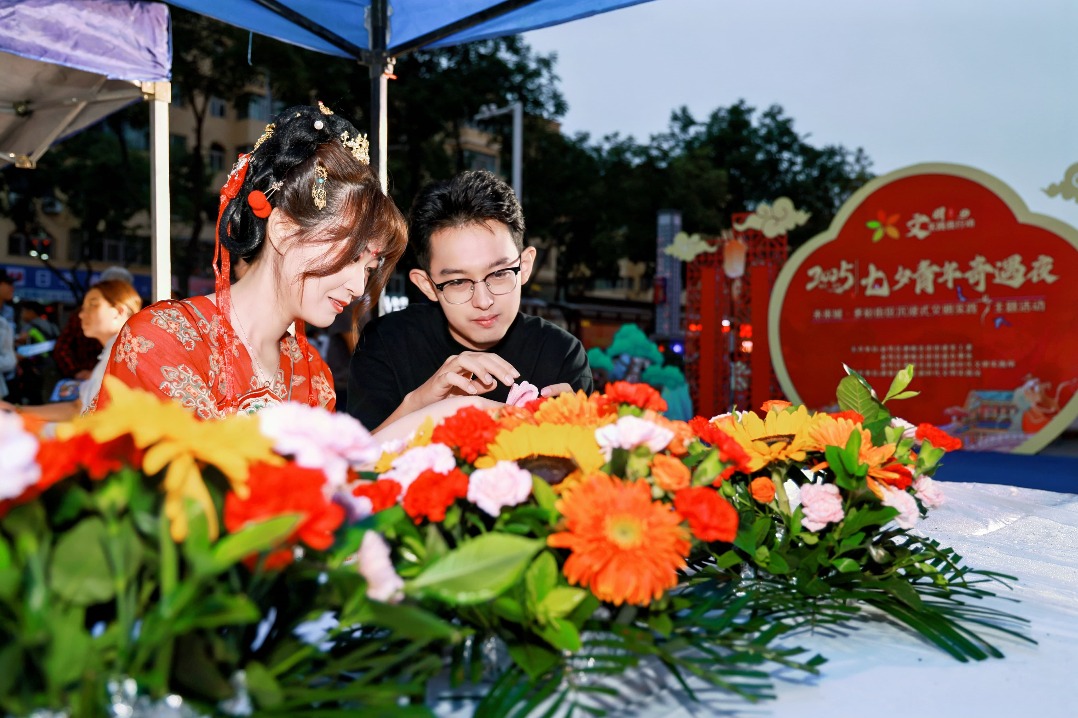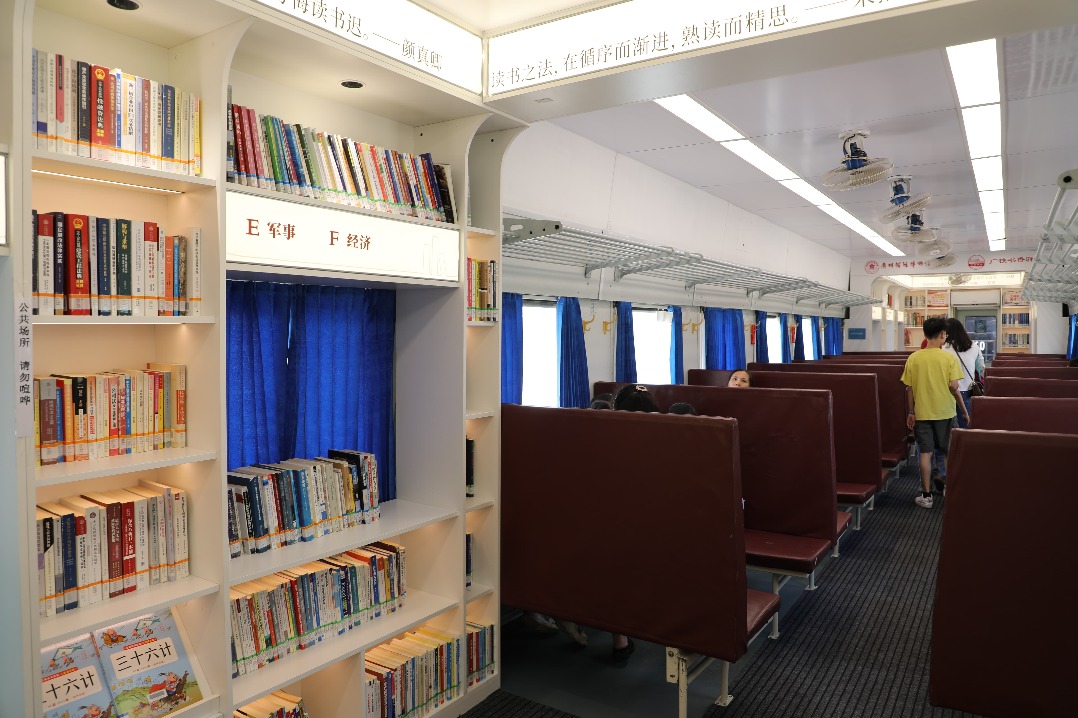Technology 'smartly' steers future of Youyi Farm in Heilongjiang


At Youyi Farm, or Friendship Farm, in China's northeastern Heilongjiang province, technology steers the future of farming and protects its black soil belt.
A large screen standing next to vast cornfields displays real-time data on soil, crops and weather — guiding farmers like a dashboard on a ship. Farmers can access this data through a mobile app, offering personalized advice on where, when and how to apply fertilizers and other techniques to boost yields.
The "Smart Management Platform" and its mini app, Zhongke Sinong, have been deployed at Youyi Farm, China's largest farm covering 188,800 hectares of arable land. The farm is pioneering the use of intelligent agriculture to protect the region's precious black soil, essential to China's food security.
"The platform provides farmers with step-by-step guidance throughout a crop's life-cycle, from soil enhancement to harvesting," said Qu Mingbo, a research assistant at the Northeast Institute of Geography and Agroecology, under the Chinese Academy of Sciences.
This is part of China's "Black Soil Granary Project", launched in 2021 to protect the black soil in the northeast, a region that produces about one-fifth of the country's grain.
For years, Chinese experts have been racking their brains on how to save black soil, one of the most valuable agricultural resources in Northeast China that feeds the mouths of millions in the country, yet only accounts for 15.4 percent of China's arable land.
China's northeast region is home to a black soil belt, which is highly fertile. It's believed that every 1 centimeter of black soil takes about 200 to 400 years to form, thus it contains abundant organic matter for crop growth.
Black soil is also fragile. Due to intensive utilization and water and wind erosion, the soil's layer has become "thinner", from between 50 and 90 cm in the 1950s to between 20 and 50 cm presently, and "leaner", with organic matter diminishing by 30 percent to 50 percent, according to the White Paper on the Black Soil Region in Northeast China published by CAS in 2020.
In 2021, President Xi Jinping emphasized the need to take effective measures to protect black soil, or "panda soil", when inspecting farmlands in Jilin province, also in Northeast China.
In response, the Chinese Academy of Sciences launched the Black Soil Granary Project, a technology-empowered campaign to restore and enhance black soil in partnership with the government, academia and the private sector.
Three years on, the project has devised and implemented a holistic approach to land rehabilitation. It involves assessing different types and degrees of soil degradation and aligning recovery measures with specific conditions of each plot.
Specifically, the project group has managed to systematically monitor the change of the black soil through what it described as a space-sky-ground three-dimensional monitoring approach.
By employing hyperspectral satellite remote sensing from space, aircraft and drones from the sky, sensors on or under the ground and lab-calibrated statistics, scientists are able to conduct a "physical checkup" of the farmland.
Since the project's launch in 2021, three large-scale aerial remote sensing surveys have been conducted to gather data on soil conditions, productivity and degradation with meter-level precision. The data collected will eventually be included in the Smart Management Platform.
"The data allows for a deeper understanding of soil conditions and precise diagnosis of soil symptoms, which helps inform targeted solutions," said Tang-Cao Jiazi, agriculture development department director of Beidahuang Agricultural Reclamation Group Youyi Branch.
Then, customized "prescriptions "are generated for each plot of land based on big data algorithms. These prescriptions guide the application of various treatment techniques, which are applied according to the specific "symptoms" of the soil.
Liu Huanjun, a researcher at the Northeast Institute of Geography and Agroecology under CAS, said that while automated farming machinery is important, the real challenge lies in providing farmers with precise recommendations about where and when to plant crops, how much to grow and how these steps connect to one another.
To illustrate, soil problems such as "broken yellow soil," where the black soil layer has thinned to expose loess, "fish's eyes", which refers to small, waterlogged puddles, and erosion gullies can be found across the fields. These issues create uneven distributions of water, soil and nutrients, rendering large-scale farming practices ineffective.
To tackle the problem, targeted surgery is carried out combining engineering, agricultural and biological measures.
Within a small watershed, in areas with thinning black soil, contour tillage and inter-row line cultivation is used, while in waterlogged areas, concealed conduits and grassed waterways are installed to prevent soil and nutrient loss. Wide ridges with carefully determined heights and directions are also built to retain water.
The project's variable rate fertilization technology is another key innovation. By drawing upon satellite data on crop growth, climate patterns and soil nutrients, the system provides tailored fertilization plans for each plot and ensures that the farms are neither overnourished nor ill-fed.
These plans are executed by automated machinery, ensuring a balanced distribution of water and nutrients across the land, which promotes uniform crop growth. The ultimate goal of the project is to turn farmland into "sponge farms" that can drain excess water during floods and retain moisture during droughts, conserving soil and nutrients. By integrating these various techniques, large-scale mechanized farming in the region has become more targeted and efficient.
The project has been piloted at 16 farms so far. According to Liu, the researcher, the results are promising: a 30 percent increase in water-use efficiency, a 5 to 22 percent rise in grain yields and a 70 percent reduction in soil erosion.
Yang Hui, vice-president of Friendship Farm, is optimistic about the future.
"With more data and advancements in agricultural technology, we'll be able to apply even more targeted, transformative measures to preserve the soil and boost yields," he said.
Xu Nuo contributed to this story.





































